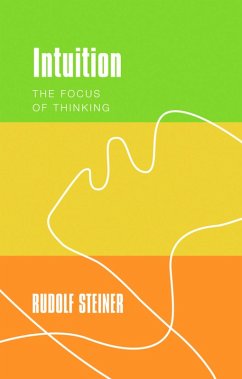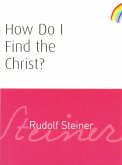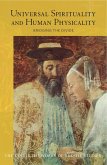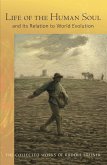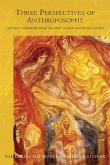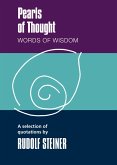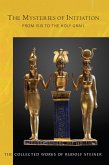Rudolf Steiner draws a clear distinction between the spiritual meaning of the word Intuition and its ordinary definition. As the highest form of spiritual perception, Intuition has an existential significance for our process of knowledge. Through systematic schooling, thinking can be developed into an intuitive organ by means of which the spiritual can consciously be understood and penetrated. Intuition can reveal the essence of the spirit, the processes through which human beings and the world came into existence, and the events in our life after death. In his later works, Steiner spoke of Intuition as a form of supersensible knowledge that could provide direct insight into practical life, as exemplified here in his commentary on geometry, architecture, education, medicine, eurythmy, painting and the social organism.
The concept of Intuition is fundamental to Rudolf Steiner's spiritual philosophy. It denotes a clear, pure mode of comprehension akin to a mathematical concept. We meet it in his earliest writings on Goethe, in the development of his philosophical ideas and in his many lectures and addresses. Ably compiled and introduced by Edward de Boer, this volume clarifies a concept that evolved in Steiner's thinking. By following the idea of Intuition in its gradual transformation and amplification throughout Steiner's writing and lecturing career, the book offers not only inspiring paths to spiritual knowledge, but also insights into how anthroposophy developed.
Chapters include: 'The Perceptive Power of Judgement - Goethe's Intuition'; 'Moral Intuition - Experiencing Thinking'; 'The Human Being - Intuition as a Bridge to the Spirit'; 'The Schooling Path - Spiritual Development and the Power of Intuition'; 'Intuition Exercises'; 'Three Stages of Consciousness - Intuition in Relation to Imagination and Inspiration'; 'Knowledge of Destiny - Intuition and Repeated Earth Lives'; 'Intuition in Practice - Examples from Various Specialist Fields'.
The concept of Intuition is fundamental to Rudolf Steiner's spiritual philosophy. It denotes a clear, pure mode of comprehension akin to a mathematical concept. We meet it in his earliest writings on Goethe, in the development of his philosophical ideas and in his many lectures and addresses. Ably compiled and introduced by Edward de Boer, this volume clarifies a concept that evolved in Steiner's thinking. By following the idea of Intuition in its gradual transformation and amplification throughout Steiner's writing and lecturing career, the book offers not only inspiring paths to spiritual knowledge, but also insights into how anthroposophy developed.
Chapters include: 'The Perceptive Power of Judgement - Goethe's Intuition'; 'Moral Intuition - Experiencing Thinking'; 'The Human Being - Intuition as a Bridge to the Spirit'; 'The Schooling Path - Spiritual Development and the Power of Intuition'; 'Intuition Exercises'; 'Three Stages of Consciousness - Intuition in Relation to Imagination and Inspiration'; 'Knowledge of Destiny - Intuition and Repeated Earth Lives'; 'Intuition in Practice - Examples from Various Specialist Fields'.
Dieser Download kann aus rechtlichen Gründen nur mit Rechnungsadresse in A, B, BG, CY, CZ, D, DK, EW, E, FIN, F, GR, H, IRL, I, LT, L, LR, M, NL, PL, P, R, S, SLO, SK ausgeliefert werden.

